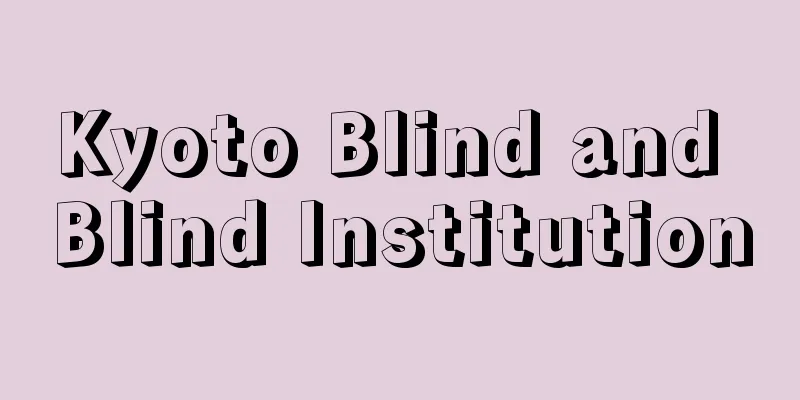Error - Script

Criminal lawThis refers to the perpetrator's perception not matching objective facts, etc. In principle, for a crime to be established, the perpetrator must have intent. The reason that intent is punished much more severely than negligence is that the perpetrator is aware of the criminal facts (constitutive facts) and knows that this is not legally permitted (illegal), but still chooses to commit the act. Therefore, if the perpetrator mistakenly believes that criminal facts exist, or commits an act under the mistaken belief that it is not illegal when in fact it is, the intent is generally denied, and if there is negligence at most, the perpetrator will only be punished as a negligent crime. In this way, the theory of intent and the theory of error can be said to be two sides of the same coin. Incidentally, in order to prove intent, it is necessary to recognize the criminal facts, but if we were to require that what the perpetrator recognized and the objective facts strictly match, we would have to deny intent in all cases where there was only a minor discrepancy (mistake) from a criminal law perspective. In fact, according to the influential view known as the concrete correspondence theory, which requires that what the perpetrator recognized and the actual result specifically match (match), if someone intended to kill A but accidentally killed B who was nearby (this case is called a "mistake in method"), the intent to commit murder would be denied (however, even with this theory, in cases of "mistake of object," i.e., for example, when someone attacks someone thinking it was A, but it is actually B who was there, not A, intent would be affirmed). In contrast, the legal correspondence theory uses the constituent elements as a standard, and in the case of a mistake within the same constituent element (a mistake of concrete fact), that is, in the case of "actually killing a person with the intention of killing a person" as mentioned above, whether it is a mistake of object, mistake of method, or mistake of causation, it is legally consistent in terms of "killing a person," so it is acceptable to recognize intent. However, even in the case of a mistake between different constituent elements (a mistake of abstract fact), for example, in a case where someone kills a person with a dog with the intention of killing someone else's dog, it is interpreted that there is no intent to "kill a person" in the first place, so there is no intent to commit murder (the conclusion of the concrete correspondence theory is the same in this respect). Next, in cases where there is awareness of the criminal facts but due to special circumstances, there is no awareness of the facts that support the illegality, specifically, in cases of mistaken reasons for excluding illegality (reason for excluding illegality), such as mistaken defense or mistaken evacuation, the facts that are considered illegal are not recognized in the first place, so the intent is precluded in the same way as in cases where there is no awareness of the criminal facts due to mistake. Therefore, for example, if the other party does not attack, but you mistakenly believe that they are attacking and counterattack, causing injury to them, the intent will be precluded. In addition, when it comes to how to handle cases where an act is illegal but is mistakenly believed to be legal (known as a mistake of illegality, a mistake of law, or a mistake of prohibition), opinions differ regarding the question of whether awareness of illegality is an element of intent. Only from the standpoint of the strict intent theory (a theory that interprets awareness of illegality as an element of intent) can one conclude that a mistake of illegality negates intent, but according to the prevailing view that does not require awareness of illegality, a mistake of illegality does not negate intent (however, there is also the limited intent theory, which requires the possibility of awareness of illegality). [Tetsuro Nawa] Under civil lawA mistake is an expression of intention in which the person who expressed his intention does not know that there is a discrepancy between his inner intention and the expression, and the person who expressed his intention is not aware of the discrepancy. For example, when one accidentally writes 1,000 yen when he intended to write 10 million yen (mistake of expression), when one mistakenly thinks that pounds and dollars are of equal value and indicates 10 dollars when he intended to write 10 pounds (mistake of content), or when one buys a packhorse by mistake, thinking it is a good horse that is pregnant (mistake of motive). Under the principle of intention, the Civil Code stipulates that an expression of intention in which there is a mistake in the "elements of a legal act" is invalid (Article 95). There is no problem with whether a mistake of expression or a mistake of content is a mistake of an element, but with regard to whether a mistake of motive is a mistake of an element, it was previously understood that if a motive was expressed, it would be a mistake of an element. However, recently, the prevailing view has been that such a distinction is not made and that if there is a mistake in an important part of the content of the expression of intention (but does not exclude motive) (i.e., if there was no mistake, neither the person himself nor an ordinary person would have made that expression of intention), the expression of intention will not have legal effect. However, if the person who made the expression is grossly negligent, he or she cannot assert that the expression is invalid (Article 95, proviso). Note that there are limitations to this protection for those who make an error under the Companies Act (Articles 51, Paragraph 2, 102, Paragraph 4, and Article 211, Paragraph 2). [Takahisa Awaji] [Reference item] | |Source: Shogakukan Encyclopedia Nipponica About Encyclopedia Nipponica Information | Legend |
刑法上行為者の認識が客観的な事実等と一致しないことをいう。 犯罪の成立には、原則として行為者に故意がなければならない。そして、故意が過失と比べ格段に重く処罰される理由は、行為者が、犯罪事実(構成要件的事実)を認識し、かつ、これが法的に許されないこと(違法)を知りながら、あえて行為に出るところにある。したがって、行為者が、犯罪事実が存在するのにこれを誤認したり、行為が違法であるのに違法ではないと錯覚して行為を行った場合には、一般的に、故意は否定され、せいぜい過失があれば過失犯として処罰されるにすぎない。このように、故意論と錯誤論とは表裏の関係にあるといえる。 ところで、故意を認めるためには犯罪事実の認識を要するが、行為者が認識したところと、客観的な事実とが厳密に一致することまで要求すると、刑法的にみてささいな不一致(錯誤)が存在するにすぎない場合にも、すべて故意を否定せざるをえなくなる。現に、具体的符合説とよばれる有力な見解によれば、行為者の認識したところと、現に発生した結果とが具体的に一致(符合)することを要求するから、Aを殺すつもりで、誤って傍らにいたBを殺してしまったような場合(この場合を「方法の錯誤」という)には、殺人罪の故意が否定される(ただ、この説でも、「客体の錯誤」すなわち、たとえば、Aだと思って攻撃したところ、実はそこにいたのはAでなくBであったような場合には、故意が肯定される)。これに対して、法定的符合説は、構成要件を基準として、同一構成要件内の錯誤(具体的事実の錯誤)の場合、すなわち、前述したような「人を殺す目的で、現に人を殺した」場合には、客体の錯誤、方法の錯誤、因果関係の錯誤のいずれであれ、「人を殺す」という点では法的に符合するから、故意を認めてもよいと解する。しかし、この説でも、異なった構成要件間の錯誤(抽象的事実の錯誤)の場合、たとえば、他人の犬を殺すつもりで、犬を連れていた人を殺してしまったようなケースでは、そもそも「人を殺す」意思がないから、殺人罪の故意は存在しないと解している(この点では具体的符合説も結論は同じ)。 次に、犯罪事実の認識はあるが、特別の事情により違法性を基礎づける事実を認識していない場合、具体的には、誤想防衛や誤想避難のように、違法性阻却事由(違法阻却事由)の錯誤の場合には、そもそも違法とされる事実そのものを認識していないのであるから、錯誤により犯罪事実を認識していない場合に準じて、故意が阻却される。したがって、たとえば、相手が攻撃してこないのに、攻撃してくると誤認して反撃を加えこれを負傷させたような場合には、故意が阻却されることになる。 また、行為が違法であるのに違法でないものと誤信した場合(違法性の錯誤、法律の錯誤、禁止の錯誤とよばれる)をどのように取り扱うべきか、については、違法性の意識は故意の要素かという問題に関連して見解は分かれる。厳格故意説(違法性の意識は故意の要素であると解する説)の立場においてのみ、違法性の錯誤は故意を阻却するという結論になるが、違法性の意識を要しないとする支配的見解によれば、違法性の錯誤は故意を阻却しないと解されている(ただし、違法性の意識の可能性を要するという制限故意説などがある)。 [名和鐵郎] 民法上意思表示をした者の内心の意思と表示とが食い違っている意思表示であって、その食い違っていることを表意者自身が知らないことを錯誤という。たとえば、1千万円と書くつもりでうっかり1千円と書いたり(表示上の錯誤)、ポンドとドルとは同価値であると誤解して10ポンドの価値を意図しつつ10ドルと表示したり(内容の錯誤)、受胎している良馬と誤解して駄馬(だば)を買った場合(動機の錯誤)などである。民法は、意思主義の下に、「法律行為の要素」に錯誤がある意思表示は無効になるものとした(95条)。表示上の錯誤と内容の錯誤が要素の錯誤となることに問題はないが、動機の錯誤が要素の錯誤になるかにつき、かつては動機が表示されると要素の錯誤になると解されていた。しかし、最近ではこのような区別をせず、意思表示の内容に関し(ただし、動機を排斥しない)、その重要な部分に錯誤があった場合(すなわち、その錯誤がなかったならば、本人も普通一般人も、その意思表示をしなかったであろうという場合)には、当該意思表示は法律的な効力を生じないものと解する考え方が有力である。ただし、表意者に重大な過失がある場合には、表意者自ら無効を主張することはできない(95条但書)。なお、この錯誤者保護も会社法では制限がある(51条2項、102条4項、211条2項)。 [淡路剛久] [参照項目] | |出典 小学館 日本大百科全書(ニッポニカ)日本大百科全書(ニッポニカ)について 情報 | 凡例 |
Recommend
Abor tribe - Aboruzoku
…A large mountain range that borders the Tibetan ...
Geography - Chilshi (English)
In China, the section of official histories that c...
Naevius, Gnaeus
Born around 270 BC. Rome? [Died] c. 201 BC. Roman ...
Galar - Galar
…Kvasir traveled the wide world, imparting wisdom...
Juraku - Juraku
A Buddhist term referring to the ten joys one can ...
Teijin Incident
A major corruption scandal involving the buying a...
Omihachiman [city] - Omihachiman
A city located on the eastern shore of Lake Biwa i...
Tolerance - Kanyoudo
...Also called latitude. In photography, it refer...
Anrakukoin Temple
...In the Middle Ages, it was called Fukakusa Hok...
Galleriinae
...Many species have a unique lifestyle in which ...
Reformation Banquets (English: Banquets réformistes) (French)
A rally calling for the reform of the electoral l...
Holbein (English spelling)
A German family of painters active during the Rena...
Smilodon (English spelling)
A large extinct genus of carnivora belonging to th...
Obstruction of public duties - Obstruction of public duties
It is a crime to obstruct a public official in th...
Japan National Railways Settlement Corporation
This special corporation was established to handl...









